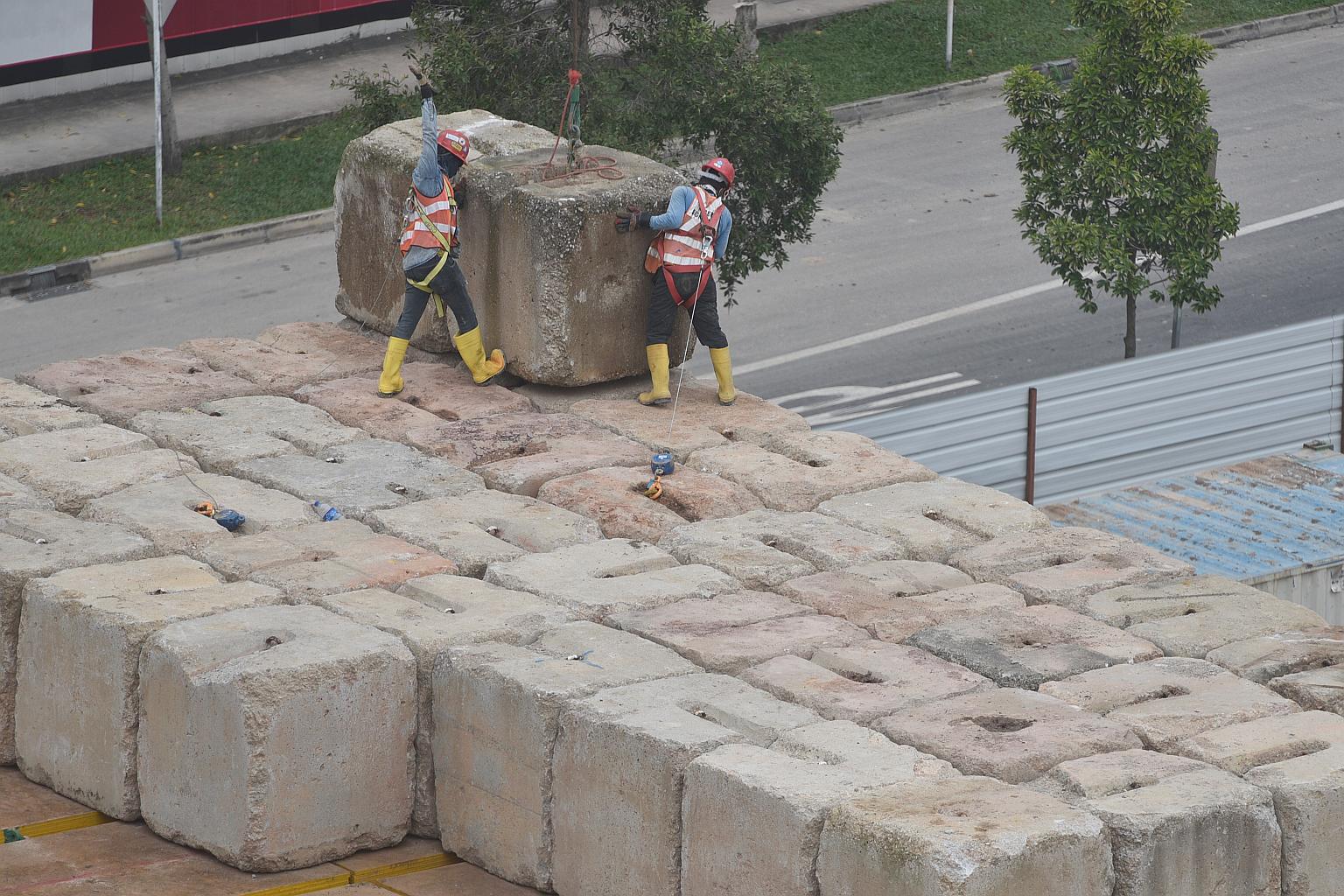Stricter workplace safety requirements necessary, say construction firms
Sign up now: Get ST's newsletters delivered to your inbox

The number of workplace fatalities as at Sept 1 stands at 36 for this year.
ST PHOTO: DESMOND WEE
SINGAPORE - Stricter workplace safety requirements are necessary to address the worrying trend of workplace injuries and deaths this year, say construction firms as they push to complete projects delayed by the pandemic.
Mr Hooi Yu Koh, chief executive of Kori Holdings, a public-listed firm in the construction sector, said the Ministry of Manpower's (MOM) announcement on Thursday of more stringent requirements is timely.
"The Covid-19 pandemic resulted in a situation where we had fewer resources and a lot of works to be caught up on, so some parties could have overlooked matters like safety.
"Because of this, an increase in surveillance and penalties is probably required to prevent further escalation," added Mr Hooi.
The number of workplace fatalities as at Sept 1 stands at 36 for this year, compared with 37 workplace deaths for the whole of 2021.
Under the changes, companies will not be allowed to hire new foreign workers for up to three months if unsafe work conditions or poor risk controls are found following a serious workplace injury or death.
This is part of a six-month heightened safety period from Sept 1 to Feb 28 next year.
A mandatory safety timeout for companies in higher risk sectors was also introduced. It was previously voluntary.
Between Sept 1 and 15, companies in the targeted sectors - such as construction, manufacturing, marine, process or transport and storage industries - will have to suspend operations temporarily to review safety procedures and complete a list of safety timeout activities.
If the safety timeout activities are not conducted by Sept 15, the companies will be barred from hiring new work pass holders for one month.
Mr Hooi said Kori Holdings has large high-risk projects, where safety criteria and controls are very stringent.
The firm is involved in several MRT-related projects, including the supply and installations of large struts and decks.
"It's company policy to have routine inspections. We already review our safety procedures regularly and will pay attention to any issues that might crop up by spending more time on-site.
"We have safety timeouts on site if there's any small issue any party comes across," said Mr Hooi.
Straits Construction executive director Kenneth Loo said he is supportive of the need for a safety timeout as it gives firms an opportunity to look at their processes and address any lapses.
But Mr Jason Oh, principal consultant for JOH Safety Consultancy, which provides workplace safety and training courses, said there is only so much the authorities can enforce.
"Contractors should take ownership of safety protocols, establish a culture and set up standard operating procedures across all their worksites.
"This needs to be driven by CEOs and management staff," he added.
Migrant rights groups said workers views must matter.
Mr Alex Au, vice-president of Transient Workers Count Too, said: "Accidents happen when workers make poor decisions under pressure, likely because of having to complete the job within a certain time.
"Some workers told us that the safety equipment issued to them is faulty. But until an accident happens, most of them feel disempowered to speak out about the issue as they want to keep their jobs."
A Humanitarian Organisation for Migration Economics spokesman said migrant workers should be given reasonable opportunity to seek new employment, "in order to reject and report unsafe work conditions and practices".
"Fear of losing their jobs... being saddled with high recruitment debt are key barriers that prevent many workers from freely reporting abusive, exploitative and unsafe conditions," she added.


